No Coast, No Limits: How Landlocked Countries are Turning Barriers into Bridges
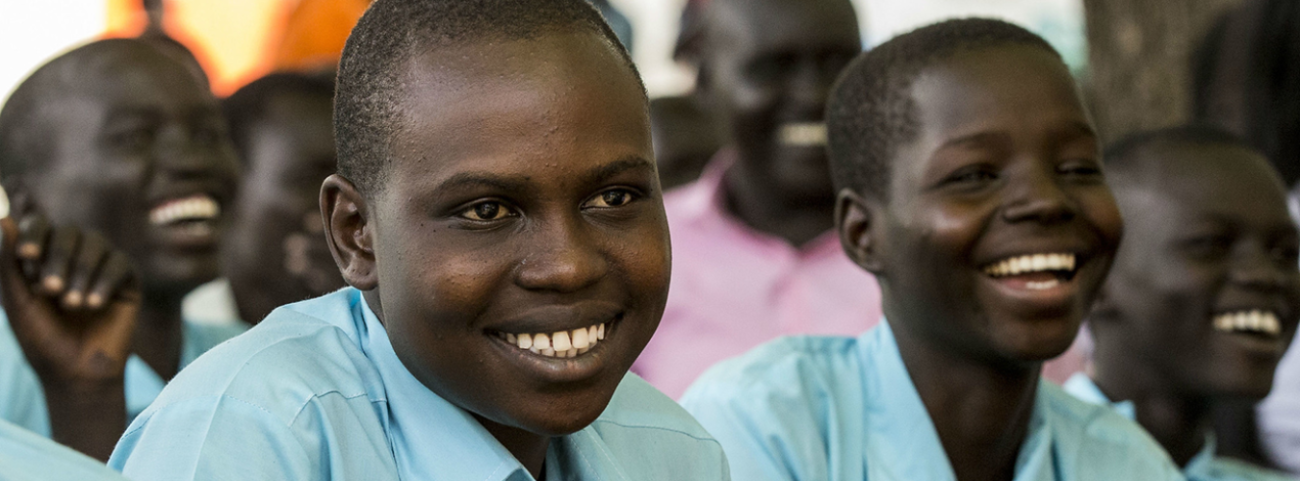
For nearly a billion people living in landlocked countries, every journey to the outside world is a long one. Goods take weeks longer to reach markets, farmers pay more to export crops, and businesses struggle to compete when every shipment has to cross another country’s border first. Add to that the rising costs of climate disasters, limited digital access, and chronic underinvestment, and it’s clear why these nations face some of the toughest development challenges anywhere.
To address these challenges, leaders agreed on a new 10‑year roadmap, the Awaza Programme of Action for Landlocked Developing Countries, which will take center stage at the Third UN Conference on Landlocked Developing Countries (LLDC3). Around the world, UN Resident Coordinators (RCs) and their teams are already turning those commitments into action, helping countries connect, trade, adapt, and thrive.
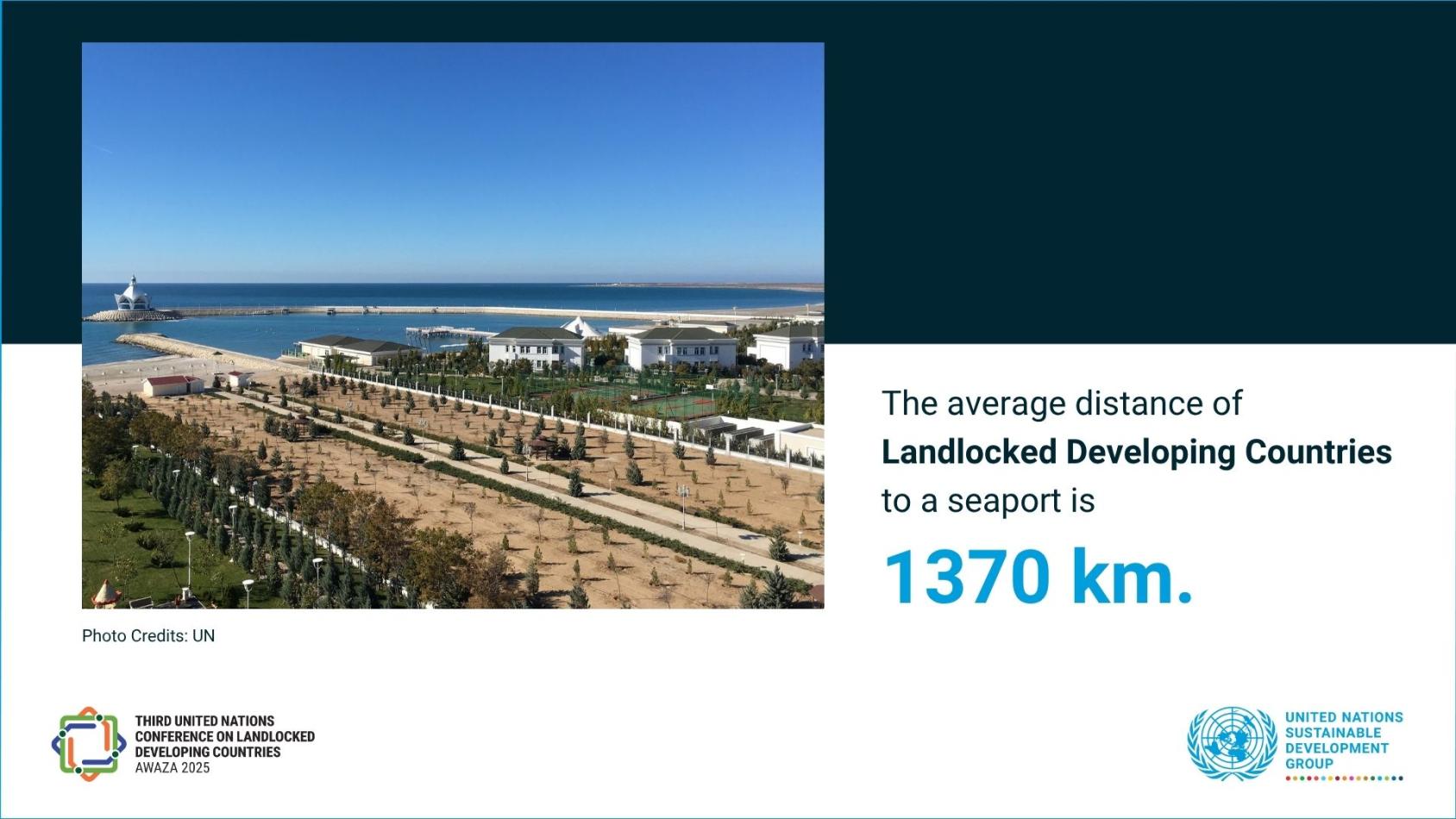
Closing the digital gap
As the global economy becomes increasingly digital, LLDCs risk being left behind without better access to the internet. The digital economy can open up new markets, bring classrooms to remote villages, and make government services more transparent, but for many landlocked countries, the promise of digital transformation is still out of reach. Internet access is uneven, especially in rural areas, and women, girls, and older people are often left behind. The Awaza plan makes digital inclusion a priority, from better internet access to online business hubs.
In Zambia, the RC is leading a UN-wide push to help the country harness technology for education, services, and jobs. The UN Country Team (UNCT) is rolling out rural Information Communication and Technology hubs, where women and girls can gain digital literacy skills and safely navigate online spaces. UN agencies are also training small businesses to use e‑commerce platforms and mobile payments, helping more than 200 entrepreneurs expand their reach. The Digital Learning Passport, supported by the UN Children’s Fund (UNICEF) and UN Educational, Scientific and Cultural Organization (UNESCO), and Microsoft, is now bringing online lessons to over 300,000 students, many in remote communities.
In Mongolia, the RC and UNCT are supporting efforts to expand the government’s “e‑Mongolia” platform to reach remote and underserved communities. The UN is helping set up the country’s first Digital Training Facility in Darkhan‑Uul province, training teachers, public servants, and parents. Mobile now reach nomadic herders, delivering digital public services to remote settlements.
In Paraguay, the UNCT is supporting digital inclusion by building national capacity for digital governance and innovation. Backing institutions like the Ministry of Information Technology and Communication and the National Council of Science and Technology, the UN has helped digitize administrative records, from forestry data to labour complaints and union registrations; improving transparency and service delivery across the Ministry of Labour, the National Statistics Institute, and the National Forestry Institute. Border management systems are being modernized, with biometric registration systems like Mandated Identity Authentication Systems (MIDAS) enhancing security and efficiency. With UN support, Guaraní-language heritage texts are being digitally preserved, to safeguard indigenous knowledge.
Financing development
Big plans need big resources, however for many landlocked countries, finding that money is one of the hardest challenges. Debt levels are high, aid is stretched thin, and climate financing often struggles to reach the countries that need it most. The Awaza Programme of Action calls for smarter, more sustainable ways to finance development.
In Rwanda, under the leadership of the RC, the UNCT is working with the Government to transform cross-border trade into an engine of inclusive, sustainable development. Through the Joint SDG Fund-backed “Amplifying Digital Opportunities in Cross-Border Trade” programme, implemented with European Union (EU) support, the UN and partners have mobilized an additional US$5 million in 2024 to power innovative digital solutions that connect small-scale traders, especially women, to markets, services, and financial tools across the Rwanda–DRC border. These efforts include streamlining trade procedures, enhancing financial inclusion through fintech, building institutional capacity, and co-creating scalable graduation models that help traders move from informal activity to formal entrepreneurship.
Meanwhile, in Uganda, the RC mobilized development actors and led a series of dialogues on financing for development in 2025. Co-convened with the Government and development partners, the dialogues laid the groundwork for a national roadmap on financing for development and reflected Uganda’s strategic shift toward innovative, blended, and locally driven financing solutions.
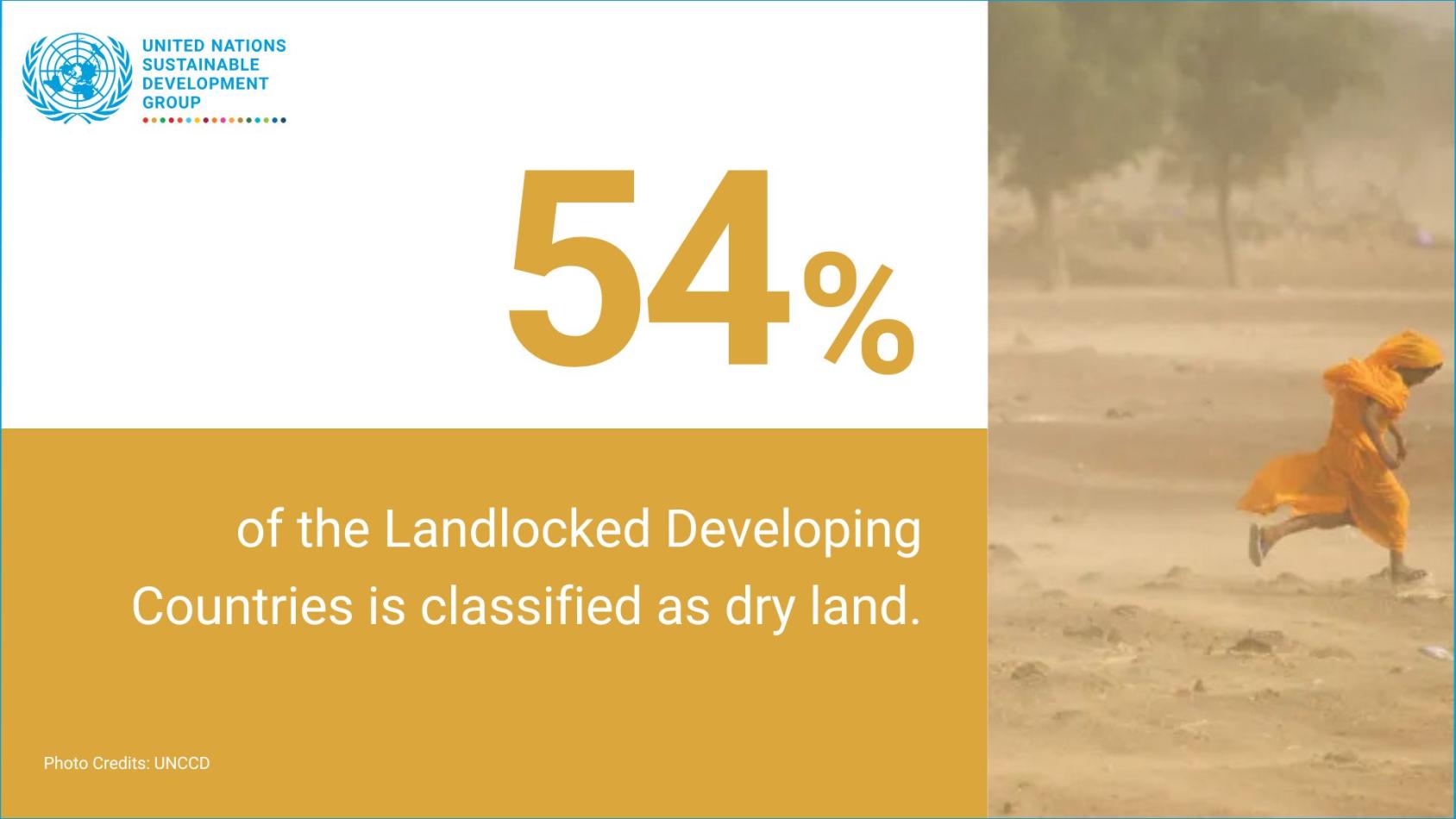
Tackling climate risks
For landlocked countries, climate change is a daily threat to lives and livelihoods. Droughts dry up farmland, floods destroy roads, and recovery is often slower and costly. The Awaza Programme of Action calls for urgent steps to build climate-resilient infrastructure, expand early warning systems, and access global climate funds so countries can prepare, not just react.
In Lesotho, the UNCT is tackling these risks by prioritizing climate-smart agriculture, food systems, and energy access. In 2024 alone, more than 26,000 farming households received climate-resilient seeds and inputs, while hundreds of farmers were trained in conservation agriculture and sustainable land management through UN support. In the remote mountain parts of the country, the UN supported mini-grid electrification, which has not only powered homes but also improved health services, education delivery, and local economies.
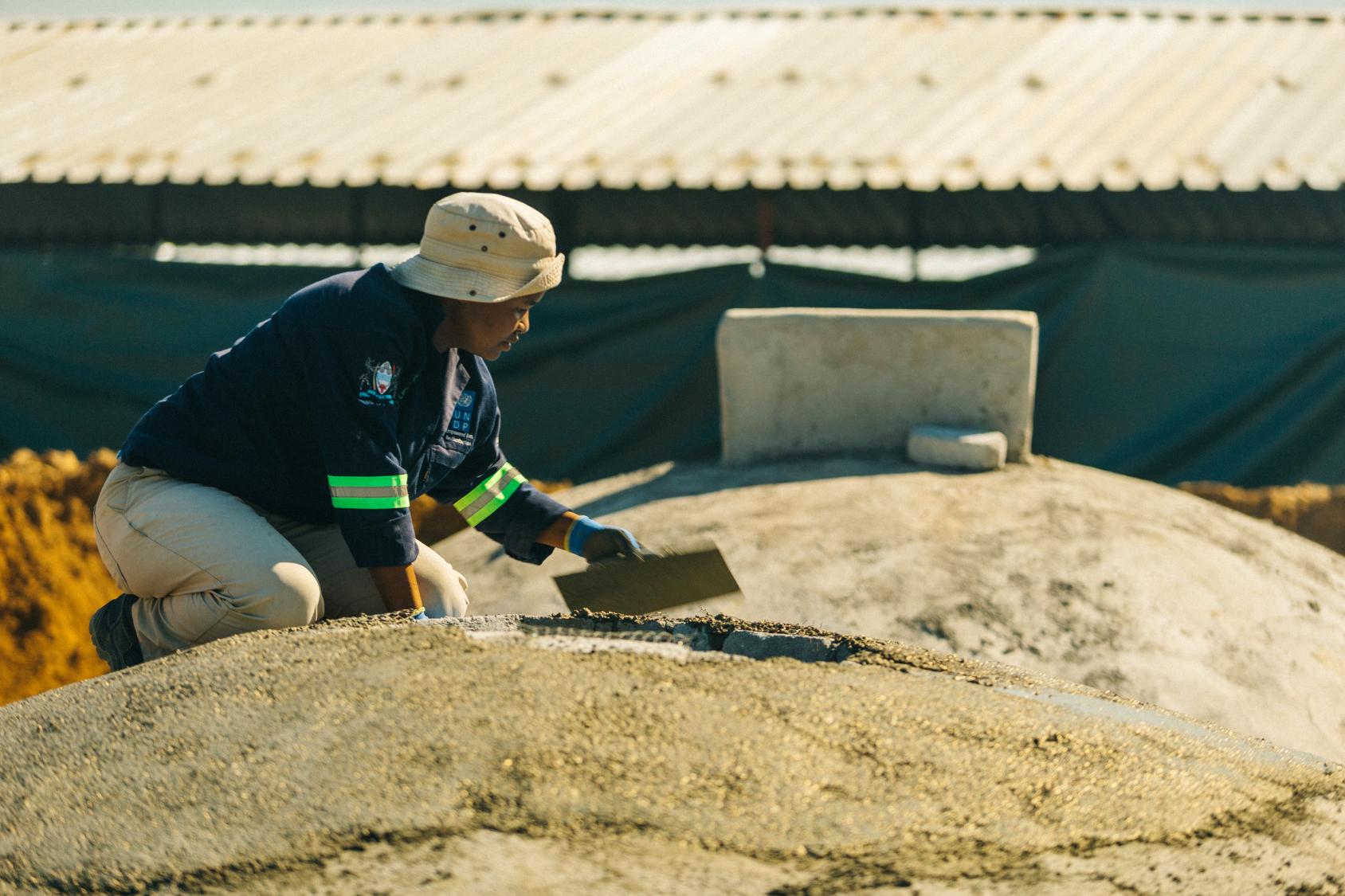
In Botswana, the RC and UNCT are helping scale up renewable energy, including expanding a Biogas Technology Programme. With UN support and funding from the Global Environment Facility and Government of Botswana, over 300 biogas digesters now generate clean energy for communities, cutting reliance on traditional fuels. The initiative has also created green jobs, training young people to build and maintain the systems and opened opportunities for women in renewable energy, linking climate action to livelihoods and equality.
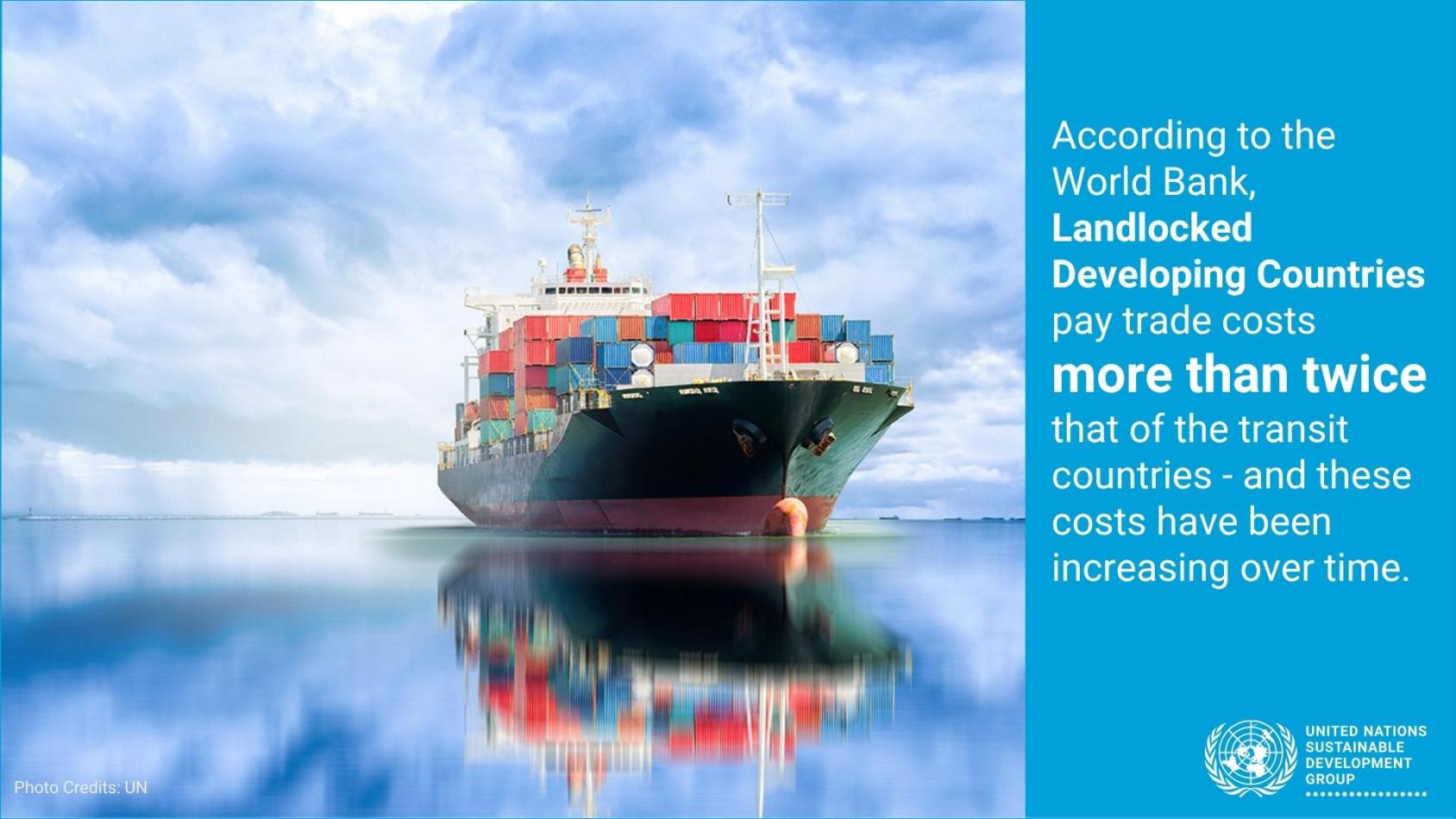
Removing trade barriers
For landlocked countries, moving goods across a border is rarely quick or cheap. Trucks can wait for days at customs posts, and endless paperwork drives up costs for exporters and importers alike. The Awaza Programme of Action calls for simpler rules, digital systems, and closer cooperation with neighbours so goods can move faster and cheaper; unlocking trade and creating jobs.
In Lao PDR, the UNCT under the leadership of the RC is helping local businesses overcome trading bottlenecks through the Agribusiness Facility for Nutrition (AFN). With AFN’s support, entrepreneur Somsai Vilaysouk, founder of Vilaysouk Import Export, secured a loan to build a warehouse and drying facilities. Now he is exporting cardamom, redroot, and maize to China and importing seeds from Vietnam and his company has employed others, while also providing farmers with steady buyers for their crops.
In Kazakhstan, the UNCT helps to open new doors to global trade. With over 12,000 users now on the Kazakhstan Trade Portal, local businesses are finding it easier than ever to access vital market information. Thanks to UN support, Kazakhstan’s trade data is now part of the Global Trade Helpdesk, boosting transparency and international reach.
The challenges for landlocked countries are steep, but not insurmountable. During LLDC3, the Awaza Programme of Action offers a chance to tear down old barriers and build new pathways, and UN Resident Coordinators are already helping countries take the first steps.













